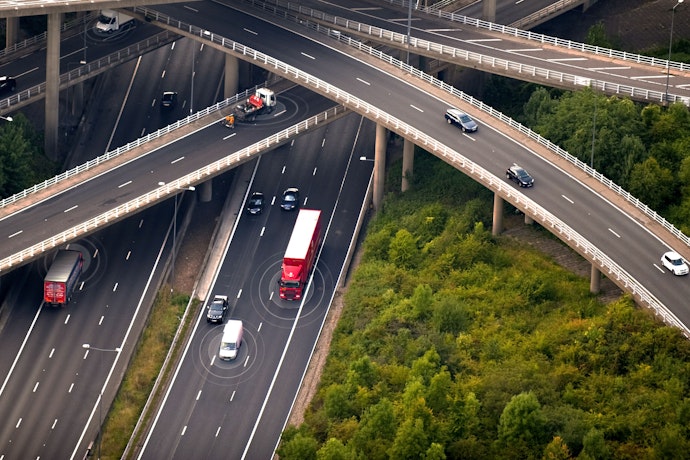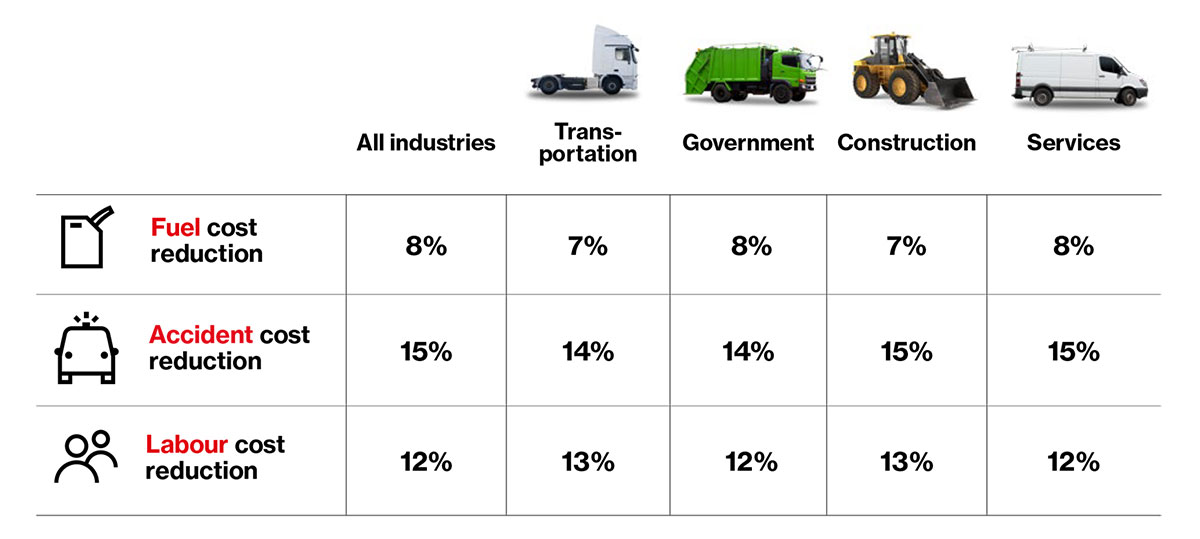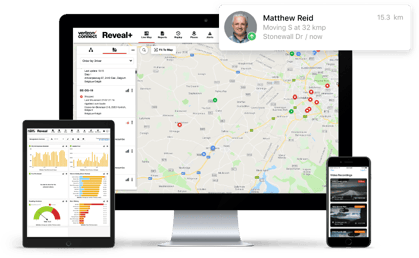9 Secrets to Reducing Fleet Expenses
As a fleet owner, your day-to-day costs can quickly add up. What you don’t know is there are further hidden, expensive...
Read more
COVID-19 was a big challenge last year. The digitalisation of businesses has become critical in order for them to remain competitive in a hyper connected world during the next era of smart industry known as Industry 4.0.
According to the Fleet Technology Trends Report Europe 2022 fleet tracking technology has become essential for businesses to obtain results. And, despite all the challenges and the uncertainty in the market, 2021 showed growth in fleet technology across Europe and the UK, helping businesses to achieve and stay competitive.
The Fleet Technology Trends Survey conducted for Verizon Connect by ABI Research, reported that the number of fleets using GPS tracking technology was 68% in 2021, highlighting that it is a consolidated and growing solution for businesses in Europe and the UK. This research found that this helps improve productivity, decrease costs and boosts customer service.
Based on surveys completed by more than 1,350 fleet managers, executives and other mobile-business specialists, the report observed that GPS fleet tracking technology has had a positive impact on their fleet daily operations and businesses.
Here are some of the key takeaways from that survey that showed that customer service has emerged as one crucial pilla for those who have adopted fleet tracking technology, with 56% reporting a marked improvement in this key performance indicator (KPI).
Also, the survey reveals that many businesses reported a negative impact from the pandemic. After experiencing the pandemic’s effects and the consequent economic impact, many companies made the decision to take action to prepare their fleets for future eventualities.
Let’s dive into the survey results:
Competitive edge with fleet technology
The majority of respondents across industries stated that GPS tracking has had a positive impact on their fleet operations- 74% considers it “very” or “extremely” beneficial.
That’s giving these companies, especially those in transportation and services, a serious competitive edge in the post-2021 landscape.
In the transportation industry, 62% of those currently using a GPS tracking solution for their fleet realised improved customer service, 57% reached their Tachograph/regulatory compliance goals, 51% achieved better routing, 52% enhanced productivity (including number of jobs and vehicle utilisation) and 36% boosted vehicle maintenance.
In the services industry, a large percentage of respondents also achieved critical goals using GPS fleet tracking technology. Distinctively, 56% improved vehicle maintenance and 54% lowered fuel consumption. Also, thirty-one percent achieved enhanced productivity in terms of the number of jobs and vehicle utilisation, and 56% saw an improvement in vehicle maintenance.
The majority of respondents for all the industries surveyed were able to achieve critical business goals. Download the full report to find out more.
Value of integrated video technology
On the way to improve safety and efficiency, which also impacts company reputation, in-cab video has emerged as a smart and innovative solution. Of those survey respondents using an in-cab video solution, a significant 71% saw improvements in driver safety.
The services industry experienced a high level of success with integrated in-cab video—76% of those currently using it considered it “very” or “extremely” beneficial, and 78% of these users were able to improve driver safety and 70% protect themselves from false claims.
This is how fleet technology can help face daily challenges and achieve cost savings
The theme of reduced costs remains to be an important issue with fleet-based organisations this year and even more due to the pandemic.
According to the survey, 70% of businesses said increased costs was one of their biggest challenges overall. And technology is one of the best allies in controlling costs across all operational areas.
Users of fleet tracking technology have shown remarkable benefits in these and other KPIs. Across all industries GPS tracking users decreased fuel costs by an average of 8%. Users also saw an average decrease of 15% in accident costs and a decrease in overall labour costs of 12%.

When talking about cost savings, the ability to achieve a return of investment on technology investments cannot be overlooked. That's why it's important to note that a majority of those in the transportation, construction and services industries achieved a positive ROI in one year or less after implementing GPS tracking.
Organisations can expect improvement in their return on investment by implementing a fleet tracking solution in the following ways:
What does this data mean for your fleet?
Data from the Fleet Technology Trends Report makes it clear that fleet organisations are using technology to build resilience into their business operations. Your technology toolbox could be your biggest ally in navigating and achieving business success. To that end, look at the following key features as you decide on a fleet tracking solution:
To learn more about how your peers view and value GPS tracking technology, download the Fleet Technology Trends Report Europe 2022.
Tags: Cost control




Find out how our platform gives you the visibility you need to get more done.
As a fleet owner, your day-to-day costs can quickly add up. What you don’t know is there are further hidden, expensive...
Read moreVerizon Connect Reveal tracks the fleet data that can have a big impact on your business. These are things like where...
Read moreReveal tracks the fleet data that can have a big impact on your business. These are things like where your vehicles are...
Read moreWork smarter from quote to completion with an end-to-end fleet management solution...
Read more